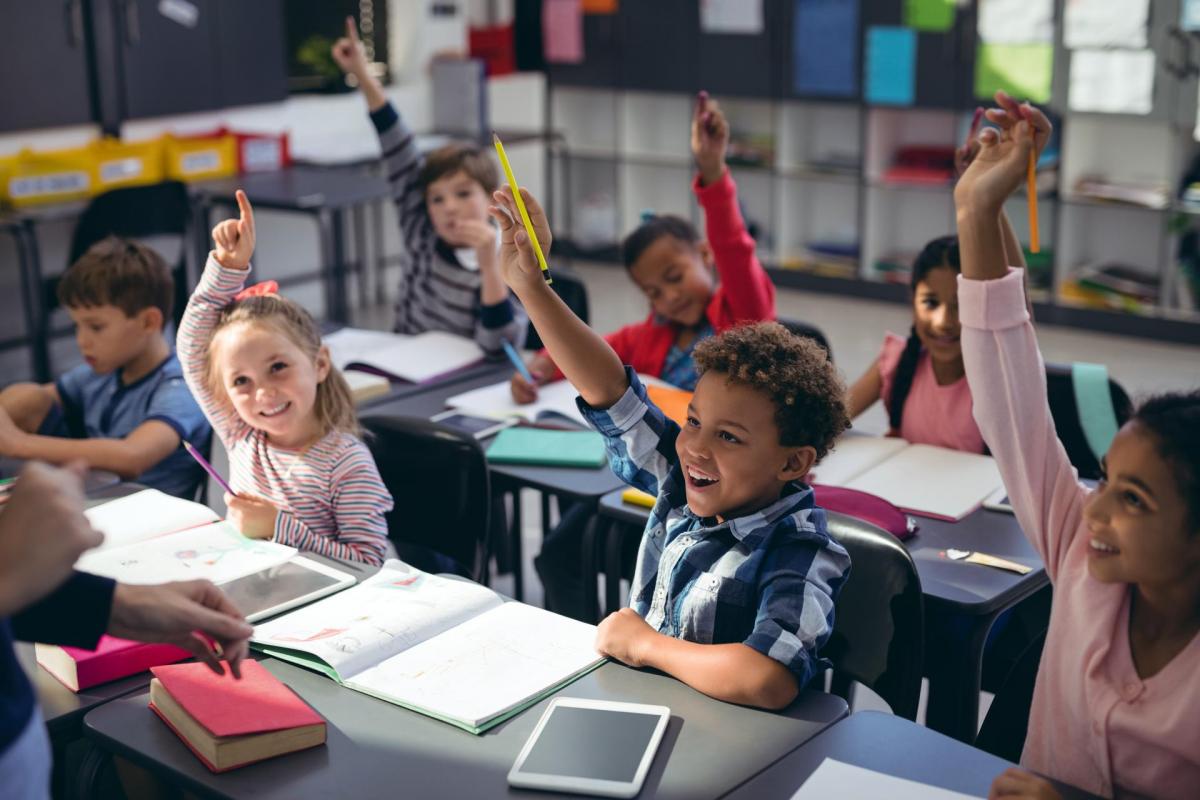The benefits of emotional resilience in Kindergarten
Wiki Article
Discovering the Perks of Kindergarten Programs: A Comprehensive Guide to Very Early Education And Learning
Preschool programs play an essential function fit a child's early academic experience. They offer a structured atmosphere where young learners can create vital social skills, psychological strength, and cognitive capacities. These fundamental abilities are necessary as children move right into even more official schooling. Comprehending just how these programs add to a child's development exposes much about their long-term educational trajectory. What details benefits do these early experiences supply, and how do they affect a child's future?The Significance of Social Skills Growth
While numerous aspects of early education concentrate on scholastic skills, the growth of social skills in preschool programs is just as vital. Social skills incorporate the capacity to connect successfully, team up with peers, and browse social situations, every one of which are important for a youngster's total advancement. In preschool, children learn to share, take turns, and solve conflicts, cultivating a sense of neighborhood and belonging. These experiences make it possible for young students to form relationships and create empathy, preparing for positive connections in the future.Educators play a critical role in helping with social skill growth with structured activities and assisted communications. Via team tasks and play, kids practice important skills such as listening, discussing, and understanding varied point of views. These interactions help children develop self-confidence and self-esteem, vital parts for their individual and academic journeys. On the whole, supporting social abilities in kindergarten enhances kids's experiences and prepares them for the intricacies of social life beyond institution.

Structure Psychological Durability in Youthful Learners
Building psychological strength in young learners is essential to their general well-being and success in different facets of life. Preschool programs supply an organized setting where children can learn to browse their feelings successfully. Via guided communications and activities, instructors assist youngsters recognize and express their feelings, promoting a sense of self-awareness.Moreover, these programs often consist of techniques for handling difficulties, such as analytical tasks and role-playing scenarios that prepare youngsters for real-life situations. By motivating teamwork and empathy, young students create strong social connections, which are vital for psychological assistance.
Educators play an essential function in modeling resilience by demonstrating how to handle stress and hardship. As children observe these behaviors, they internalize valuable coping devices, furnishing them to manage future emotional difficulties with higher ease. On the whole, supporting emotional resilience in very early education and learning lays a strong structure for long-lasting psychological wellness and versatility.
Enhancing Cognitive Abilities Through Structured Knowing
As youngsters take part in structured knowing experiences within preschool programs, their cognitive abilities are considerably enhanced. These programs present age-appropriate activities that stimulate crucial reasoning and analytic abilities. Hands-on tasks such as problems and structure blocks advertise spatial understanding and rational thinking.Interactive narration and team conversations foster language development, expanding vocabulary and understanding. Through structured regimens, youngsters find out to comply with instructions, boosting their exec working skills, which are vital for future scholastic success.
Social communications within these programs also play a significant duty, as youngsters learn to work together and communicate effectively, further increasing cognitive growth.
Additionally, integrating play-based understanding permits children to discover concepts in a fun and appealing method, reinforcing their understanding and retention of expertise. On the whole, organized learning in kindergarten lays a strong foundation for cognitive growth, preparing kids for the obstacles of greater education.
Promoting a Love for Lifelong Discovering

Furthermore, positive communications with educators and peers add to an atmosphere where knowing is considered as rewarding and satisfying. This encouraging environment assists instill innate inspiration and strengthens the concept that education and learning is a continual trip instead than a location.
As kids discover their staminas and rate of interests, they are more probable to pursue expertise past the class, laying the foundation for a lifelong dedication to learning. Inevitably, kindergarten programs play a crucial duty fit passionate students who embrace instructional opportunities throughout their lives.
Preparing for Future Academic Success
While foundational skills are crucial for very early learners, preschool programs also play a critical duty in preparing kids for future scholastic success. These programs present essential concepts such as literacy and numeracy, assuring that kids create the cognitive abilities necessary for advanced knowing. By taking part in organized tasks, trainees boost vital thinking and analytic abilities, laying a strong foundation for their educational view it now journey.Kindergarten promotes social-emotional development, making it possible for children to navigate joint tasks and construct partnerships with peers. This joint setting infuses a feeling of belonging and improves self-confidence, which is very important for scholastic determination.
Furthermore, exposure to diverse knowing experiences in preschool cultivates flexibility, equipping kids to deal with different topics and challenges in subsequent grades (Grade School). Eventually, by offering a well-rounded early education and learning, preschool programs ensure that kids are not just prepared for very first quality but also gotten ready for continued scholastic success throughout their educational occupations
Frequently Asked Concerns
What Age Is Suitable for Starting Kindergarten Programs?
The ideal age for beginning preschool programs is generally between five and six years old. This age enables kids to establish necessary social, emotional, and cognitive skills, preparing them for future scholastic success and personal development.How Do I Pick the Right Preschool Program for My Kid?
To select the ideal kindergarten program, one need Grade School to think about elements such as educational program, educator certifications, class size, area, and the school's ideology. Observing the environment and event responses from various other parents can additionally be beneficial.Exist Any State Requirements for Kindergarten Enrollment?
Several states have specific requirements for kindergarten registration, including age restrictions and paperwork such as birth certifications or proof of residency (Private School). Parents should consult their local education authority to comprehend the exact standards in their locationWhat Should Moms and dads Expect Throughout a Regular Preschool Day?
Throughout a normal preschool day, moms and dads can anticipate structured tasks including circle time, innovative play, fundamental scholastic lessons, treat breaks, and social communication, all developed to foster understanding and development in a caring environment.Just How Can Parents Support Knowing at Home along with Preschool?
Moms and dads can sustain discovering at home by taking part in routine analysis, integrating instructional video games, establishing a constant regimen, motivating inquisitiveness via inquiries, and developing a favorable, caring atmosphere that promotes expedition and creativity.Kindergarten programs play an essential function in forming a child's very early educational experience. Preschool programs provide an organized atmosphere where kids can find out to browse their emotions efficiently. As kids involve in structured learning experiences within preschool programs, their cognitive abilities are considerably improved. By engaging kids in varied activities-- such as storytelling, hands-on experiments, and collaborative tasks-- preschool programs cultivate inquisitiveness and exploration. While fundamental abilities are essential for early learners, kindergarten programs also play a critical role in preparing children for future scholastic success.
Report this wiki page